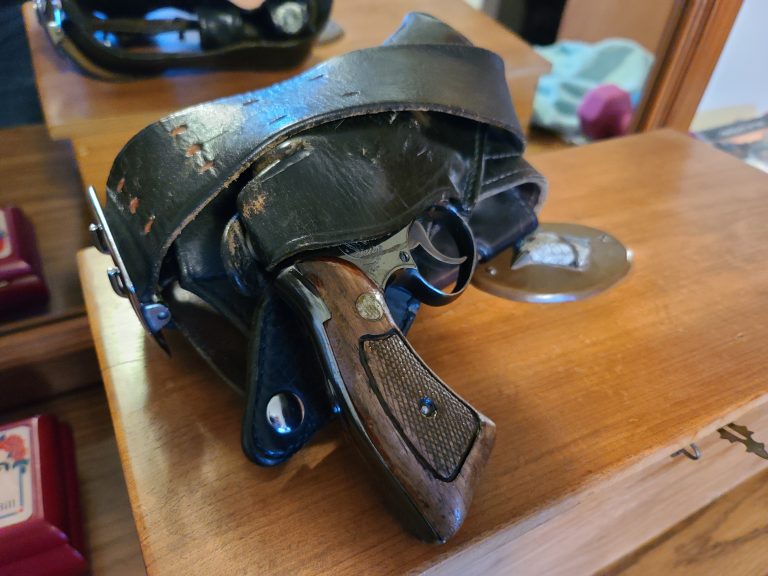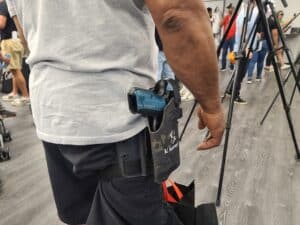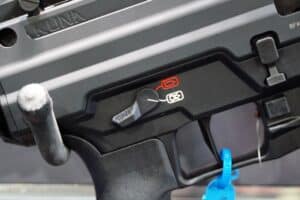Those looking to legally pack heat for self-defense in the Aloha State might finally have the ability to do so.
Hawaii Attorney General Holly Shikada (D.) issued an opinion letter on the state’s gun permitting law Thursday at the request of Governor David Ige (D.). The letter instructs state law enforcement agencies to begin issuing concealed carry permits in accordance with the Supreme Court’s New York State Rifle and Pistol Association v. Bruen ruling.
“Following Bruen, the chiefs of police may not constitutionally restrict both concealed and unconcealed (open) carry licenses only to those who demonstrate a ‘special need,’” Shikada’s opinion reads. “The language in Hawaiʻi Revised Statutes requiring that an applicant ‘[i]n an exceptional case . . . show[] reason to fear injury to the applicant’s person or property’ in order to obtain a concealed carry license should no longer be enforced.”
Her guidance makes Hawaii the last of the six states identified by the Supreme Court in Bruen to issue formal guidance withdrawing a “special need” requirement for gun-carry permits. State officials were previously silent on the matter while other affected states to varying degrees made changes to comport with the high court’s decision.
The opinion also vindicates what has been a years-long battle for gun-rights advocates in the state looking to achieve some semblance of a right to carry a firearm for self-defense. A separate legal challenge to Hawaii’s restrictive gun permitting regime in the case Young v. Hawaii was litigated for nearly ten years before an en banc panel of the Ninth Circuit Court of Appeals held that the Second Amendment does not apply outside the home at all in 2021. The Court kicked that case back to the Ninth Circuit for reconsideration in the wake of Bruen.
Gun-rights supporters reacted with tempered excitement toward the Attorney General’s new guidance and are adopting a wait-and-see approach for how it will play out.
“While I am glad that the State of Hawaii is making some efforts to comply with the Bruen opinion, I have my concerns regarding how permits are going to be issued in practice,” Alan Beck, a gun-rights attorney involved in Young and other litigation against the state, told The Reload. “Ultimately, the offending law is still on the books. A nonbinding promise to not enforce an unconstitutional law is insufficient.”
In addition to keeping the old carry law on the books, the opinion also emphasizes ways in which state law enforcement is still permitted to clamp down on gun carry. Though it now appears that lawful gun owners in Hawaii will see their odds of receiving a concealed carry permit greatly increase, the Attorney General’s opinion makes clear that the state still intends to take a restrictive approach to open carry.
“Although Bruen recognized a right to public carry under the U.S. Constitution, it did not recognize a specific right to either concealed or unconcealed carry,” the opinion states. “This leaves states with discretion to place good cause restrictions on one form of carry, where similar restrictions are not placed on the other form of carry. The good cause requirement[…] should still be applied as to unconcealed carry applications.”
The opinion also directs the state’s chiefs of police to consider whether or not an applicant is a “suitable person” when deciding whether to grant a concealed carry permit. Factors to be considered for determining “suitability” include whether an applicant has had recent incidents of “alleged domestic violence”, “careless handling or storage of a firearm”, “alcohol or drug abuse”, and “other recent violent conduct.”
Beck expressed concern that the suitability review could still leave plenty of room for subjective discretion on the part of law enforcement.
“The suitability requirements appear to have room for abuse and the county officials tasked with issuing permits still have leeway to deny law abiding applicants,” he said.
Jurisdictions within the state have previously been rebuked for using criteria similar to the suitability requirements for denying gun permits. A Honolulu practice of denying gun-purchase permits to residents over non-criminal disorderly conduct violations was rescinded following a legal challenge from Beck last August.
Attorney General Shikada’s office declined a request for comment.







One Response
It seems this is not an acknowledgement of error, but instead a spiteful letter instructing to continue “good cause” requirements via two-step approach. Blotting out the speck of the narrowest reading of Bruen.
The Supreme Court allowed this flagrant disregard of their ruling in Heller. “Storage” requirements and handgun bans in all but name (roster) continue decades later, thanks to aid and abetment by activist courts.
I have stated this before, but acts like this mean the government has no legitimacy.